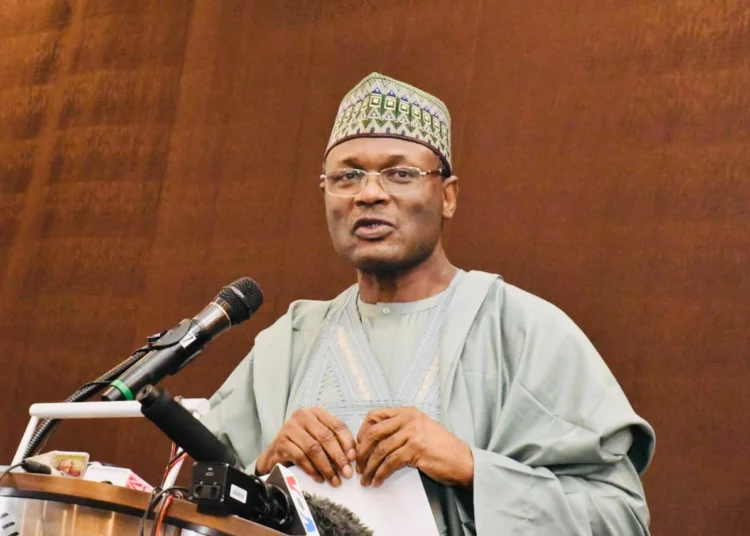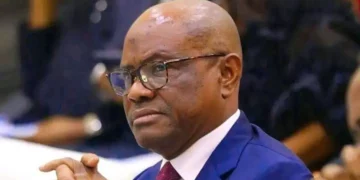Financial audit reports submitted to the Independent National Electoral Commission (INEC), as required by law, have shown that the All Progressives Congress (APC) and the Peoples Democratic Party (PDP) are among the parties that exceeded campaign spending limits during the 2015 general elections.
The reports exclusively obtained by LEADERSHIP revealed that the two major parties ran afoul of campaign spending as they reportedly exceeded the N1billion ceiling set by the Electoral Act for presidential campaign..
During the 2015 elections, out of the 26 registered political parties in Nigeria, only 11 submitted names of candidates to run for the presidency.
Basically, the Electoral Act requires political parties to submit their financial statements within six months after an election, while the commission must publish the audited reports in at least three national newspapers.
PDP which was the ruling party at the time claimed it spent N4.8 billion on the presidential polls. The audit report shows that the APC spent N2.9 billion on election expenses for the 2015 general elections.
Besides the fact that the APC and the PDP disclosures apparently came years behind schedule, INEC has also refused to publish the Executive Summary of External Auditor Report On The Account of Political Parties for the Year 2015/2016.
When asked about the audited report of the 2019 general elections, the nation’s electoral body claimed that reports are with professional audit firms appointed by INEC to ascertain that the financial statements comply with generally accepted accounting principles.
“The audit reports for 2017, 2018, 2019, 2020, and 2021 are being audited by professional Audit firms appointed by the commission,” a top official in INEC claimed.
The APC report was audited by Mai-Alheri and Co. while the then-ruling PDP report was audited by Paul Akinade Adebimpe and Co.
In the report, the APC generated only N604.5 million in 2015, but spent N2.9 billion, leaving a deficit of N2.3 billion. On the other hand, the PDP earned only N799 million in 2015, but spent N9.53 billion on the presidential campaign, leaving a deficit of N8.7 billion.
APC’s income, according to the report, was derived from the sale of nomination forms and donations/gifts. Its nomination forms generated N329.5 million, and donations and gifts brought in N275 million.
The generated funds were, however, spent on administration, election, repairs and maintenance, welfare, and financial charges.
Administration cost was put at N296.3 million, N2.6 billion on the election, N56.5 million on repairs and maintenance, N485,800 on welfare, and N15.4 million on financial charges, for a grand total of N2,952,924,250.
Sadly, the report also shows that the salary and wages for the period under review was N25,709,165 while it paid N28,887,500 for audit and professional fees.
The APC reported it had a surplus of N2,348,426,793 in the audited report, while its depreciation for the year 2015 was N44,198,934.
The report also shows that the party’s surplus (deficit) after depreciation is N2,392,625,727.
Three years since the last general elections and exactly 103 days to the 2023 general election, the Commission is yet to publish the expenditures of political parties for the 2019 general elections. This is clearly in defiance of the new Electoral Act.
INEC, through tracking and monitoring, established that the APC spent N4.6 billion (N4,620,144,784) while the PDP spent N3.3 billion (N3,282,206,642) on the last presidential election on billboards, print media advertisements, electronic media advertisements, and coverage (musical performances) during the 2019 polls; however, the Commission opted not to publish its report on a national daily.
This shows that the Commission is yet to conform with Section 15(c) of the Third Schedule of the 1999 Constitution of the Federal Republic of Nigeria (as amended).
Specifically, the section stipulates that the Commission shall “arrange for the annual examination and auditing of the funds and accounts of political parties, and publish a report on such examination and audit for public information.”
Section 89 (8) of the new Electoral Act says, “The Commission shall make available for public inspection during regular business hours at its headquarters and state offices the audited returns of the political parties required by subsection (3) which shall include the names, addresses, occupation, and amount contributed by each contributor to a party.”
Also, Section 89 (3) stipulates that “Election expenses of a political party shall be submitted to the Commission in a separate audited return within six months after the election and such return shall be signed by the political party’s auditors and countersigned by the chairman of the party and be supported by a sworn affidavit by the signatories as to the correctness of its contents.
According to the law, any political party which contravenes subsection (3) commits an offence and is liable on conviction to a maximum fine of N1,000,000 , and in the case of failure to submit an accurate audited return within the stipulated period, the court may impose a maximum penalty of N200,000 per day on any party for the period after the return was due until it is submitted to the Commission.
The electoral act also says any political party that incurs election expenses beyond the limit set in subsection (2) commits an offence and is liable, on conviction, to a maximum fine of N1,000,000 and forfeiture to the Commission of the amount by which the expenses exceed the limit set by the Commission.





